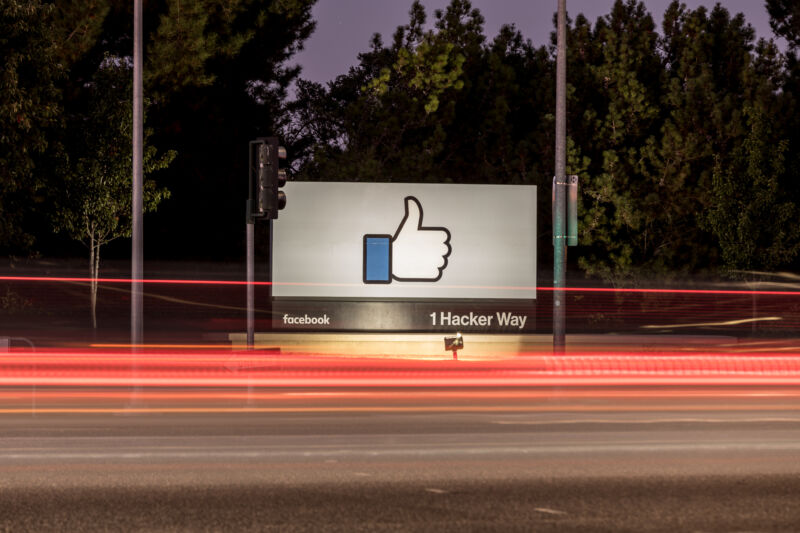Meta may revise AI policies that experts say overlook “more misleading” content.

A fake video manipulated to falsely depict President Joe Biden inappropriately touching his granddaughter has revealed flaws in Facebook’s “deepfake” policies, Meta’s Oversight Board concluded Monday.
Last year when the Biden video went viral, Facebook repeatedly ruled that it did not violate policies on hate speech, manipulated media, or bullying and harassment. Since the Biden video is not AI-generated content and does not manipulate the president’s speech—making him appear to say things he’s never said—the video was deemed OK to remain on the platform. Meta also noted that the video was “unlikely to mislead” the “average viewer.”
“The video does not depict President Biden saying something he did not say, and the video is not the product of artificial intelligence or machine learning in a way that merges, combines, replaces, or superimposes content onto the video (the video was merely edited to remove certain portions),” Meta’s blog said.
“The board sees little sense in the choice to limit the Manipulated Media policy to cover only people saying things they did not say, while excluding content showing people doing things they did not do,” the board said, noting that Meta claimed this distinction was made because “videos involving speech were considered the most misleading and easiest to reliably detect.”
The board called upon Meta to revise its “incoherent” policies that it said appear to be more concerned with regulating how content is created, rather than with preventing harms. For example, the Biden video’s caption described the president as a “sick pedophile” and called out anyone who would vote for him as “mentally unwell,” which could affect “electoral processes” that Meta could choose to protect, the board suggested.Advertisement
“Meta should reconsider this policy quickly, given the number of elections in 2024,” the Oversight Board said.
One problem, the Oversight Board suggested, is that in its rush to combat AI technologies that make generating deepfakes a fast, cheap, and easy business, Meta policies currently overlook less technical ways of manipulating content.
Instead of using AI, the Biden video relied on basic video-editing technology to edit out the president placing an “I Voted” sticker on his adult granddaughter’s chest. The crude edit looped a 7-second clip altered to make the president appear to be, as Meta described in its blog, “inappropriately touching a young woman’s chest and kissing her on the cheek.”
Meta making this distinction is confusing, the board said, partly because videos altered using non-AI technologies are not considered less misleading or less prevalent on Facebook.
The board recommended that Meta update policies to cover not just AI-generated videos, but other forms of manipulated media, including all forms of manipulated video and audio. Audio fakes currently not covered in the policy, the board warned, offer fewer cues to alert listeners to the inauthenticity of recordings and may even be considered “more misleading than video content.”
Notably, earlier this year, a fake Biden robocall attempted to mislead Democratic voters in New Hampshire by encouraging them not to vote. The Federal Communications Commission promptly responded by declaring AI-generated robocalls illegal, but the Federal Election Commission was not able to act as swiftly to regulate AI-generated misleading campaign ads easily spread on social media, AP reported. In a statement, Oversight Board Co-Chair Michael McConnell said that manipulated audio is “one of the most potent forms of electoral disinformation.”
To better combat known harms, the board suggested that Meta revise its Manipulated Media policy to “clearly specify the harms it is seeking to prevent.
Rather than pushing Meta to remove more content, however, the board urged Meta to use “less restrictive” methods of coping with fake content, such as relying on fact-checkers applying labels noting that content is “significantly altered.” In public comments, some Facebook users agreed that labels would be most effective. Others urged Meta to “start cracking down” and remove all fake videos, with one suggesting that removing the Biden video should have been a “deeply easy call.” Another commenter suggested that the Biden video should be considered acceptable speech, as harmless as a funny meme.
While the board wants Meta to also expand its policies to cover all forms of manipulated audio and video, it cautioned that including manipulated photos in the policy could “significantly expand” the policy’s scope and make it harder to enforce.
“If Meta sought to label videos, audio, and photographs but only captured a small portion, this could create a false impression that non-labeled content is inherently trustworthy,” the board warned.
Meta should therefore stop short of adding manipulated images to the policy, the board said. Instead, Meta should conduct research into the effects of manipulated photos and then consider updates when the company is prepared to enforce a ban on manipulated photos at scale, the board recommended. In the meantime, Meta should move quickly to update policies ahead of a busy election year where experts and politicians globally are bracing for waves of misinformation online.
“The volume of misleading content is rising, and the quality of tools to create it is rapidly increasing,” McConnell said. “Platforms must keep pace with these changes, especially in light of global elections during which certain actors seek to mislead the public.”
Meta’s spokesperson told Ars that Meta is “reviewing the Oversight Board’s guidance and will respond publicly to their recommendations within 60 days.”




